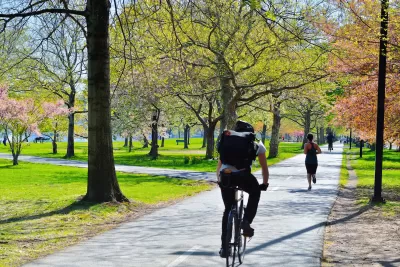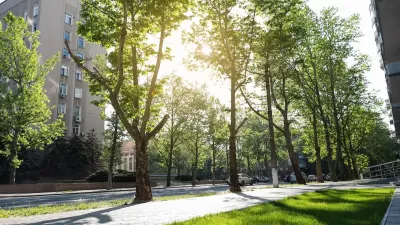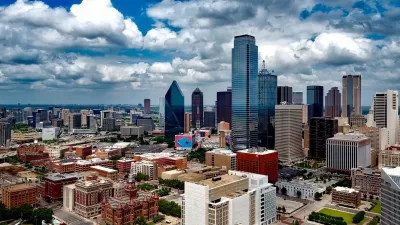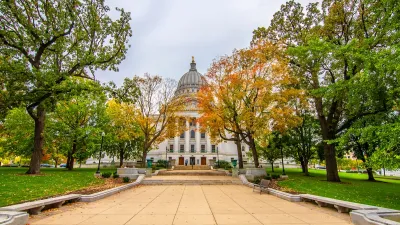Urban trees are essential for cooling public spaces, promoting physical activity, and protecting vulnerable populations from extreme heat.

As climate change intensifies, record-breaking heat has become a leading public health threat, not only by causing direct heat-related deaths but also by discouraging outdoor physical activity. The rising temperatures make parks, streets, and recreational spaces dangerously hot, posing risks to those who rely on these areas for exercise and leisure. Maintaining physical activity is crucial for both physical and mental health, yet the increasing heat threatens to reduce the number of people engaging in outdoor activities, particularly in urban areas where shade is scarce.
As Nadina Galle and Jad Daley share in this article, urban trees offer a powerful solution to this problem by providing natural cooling through shade and evapotranspiration, which can lower temperatures by up to 45 degrees Fahrenheit. By strategically planting trees in key recreational areas, cities can create cooler, more comfortable environments that encourage safe outdoor activity even during extreme heat. Initiatives like Phoenix's “Cool Corridors” demonstrate how targeted tree planting can address both environmental and social equity, ensuring that all neighborhoods have access to the cooling benefits of trees.
In addition to promoting active lifestyles, trees play a critical role in protecting vulnerable populations, such as children and the elderly, from the dangers of extreme heat. Shaded public spaces allow for safer outdoor activities, reducing the reliance on air conditioning, which many cannot afford. With growing investments in urban forestry, such as the $1.5 billion from the Inflation Reduction Act, expanding tree cover in disadvantaged neighborhoods is essential for creating heat-resilient communities and safeguarding public health in a warming world.
FULL STORY: How trees can help keep us healthy and active in hot weather

Alabama: Trump Terminates Settlements for Black Communities Harmed By Raw Sewage
Trump deemed the landmark civil rights agreement “illegal DEI and environmental justice policy.”

Study: Maui’s Plan to Convert Vacation Rentals to Long-Term Housing Could Cause Nearly $1 Billion Economic Loss
The plan would reduce visitor accommodation by 25% resulting in 1,900 jobs lost.

Planetizen Federal Action Tracker
A weekly monitor of how Trump’s orders and actions are impacting planners and planning in America.

Federal Homelessness Agency Places Entire Staff on Leave
The U.S. Interagency Council on Homelessness is the only federal agency dedicated to preventing and ending homelessness.

Restoring Northern India’s Himalayan ‘Water Temples’
Thousands of centuries-old buildings protect the region’s natural springs and serve as community wells and gathering places.

Milwaukee to Double Bike Share Stations
Bublr Bikes, one of the nation’s most successful, will add 500 new e-bikes to its system.
Urban Design for Planners 1: Software Tools
This six-course series explores essential urban design concepts using open source software and equips planners with the tools they need to participate fully in the urban design process.
Planning for Universal Design
Learn the tools for implementing Universal Design in planning regulations.
Caltrans
Smith Gee Studio
Institute for Housing and Urban Development Studies (IHS)
City of Grandview
Harvard GSD Executive Education
Toledo-Lucas County Plan Commissions
Salt Lake City
NYU Wagner Graduate School of Public Service





























